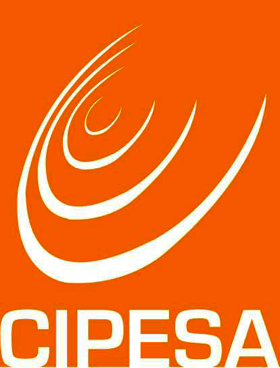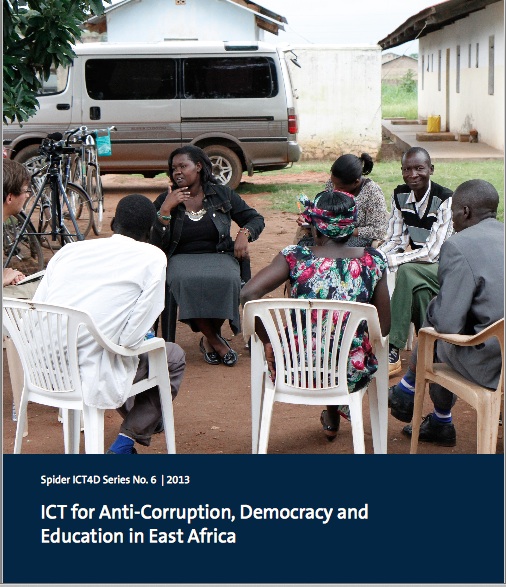What is the price of security? Should it be your online freedom?
By Juliet Nanfuka
Where do human rights and online rights meet? Is there a clash between online freedom and human rights? Is there room for self-regulation? These are some of the questions that a recently concluded online discussions report on Internet freedom in Africa explores.
Participants from Uganda, Kenya and Nigeria used online platforms to discuss these issues over a four week period at the end of 2013.
A key theme that came out of the report is the recognition of the increased numbers of internet users across the continent and parallel to this, increased measures taken by governments on surveillance of citizens. This, in turn, has brought to the fore many questions about freedom of expression and privacy.
Many countries are faced with contradictory policies when it comes to freedom of expression especially when it is placed alongside national security and stability. As a result, freedom of expression is threatened by restrictive legal measures that infringe on the access and sharing of information. In addition to these are the legal permissions granted to governments with regards to accessing information about users. Requests from African governments, although few, appear to be politically motivated according to the Google Transparency Reports.
In light of this, a participant asked a key question that also raises concerns about censorship, “How much can you restrict if those with no restriction can interact with and pass on information to the restricted using alternative methods of communication?” This led to the recognition of the conflict that exists between online freedom of expression and the state. Such was seen in the 2011 politically motivated ‘Walk to Work’ protests in Uganda in which the national communications regulatory authority, the Uganda Communications Commission, instructed ISPs to block access to social networking sites like Twitter and Facebook for 24 hours. More on this can be found here Internet Freedom in Africa Under Threat.
The report, prepared by the Collaboration on International ICT Policy in East and Southern Africa (CIPESA) in partnership with Paradigm Initiative Nigeria (PIN) can be downloaded here.
CIPESA in 2014
In 2014, we continue to work to promote the inclusiveness of the information society. Under four thematic areas (Internet Governance, ICTs for Democracy, Online Freedoms and Open Data & eGovernance), our projects this year span 8 countries (Burundi, Ethiopia, Kenya, Rwanda, Somalia, South Africa, Tanzania and Uganda). Highlights of our focus, activities and partners are summarised here.
Video: Introduction to eSociety Kasese
Located in Western Uganda, eSociety Kasese is a resource centre that promotes ICT literacy and the use of ICT for transparency in the local government. As part of its iParticipate Uganda project, the Collaboration on International ICT Policy for East and Southern Africa (CIPESA) has provided to the centre equipment and connectivity support. In addition, we jointly conduct research and citizen journalism training.
Below is an introductory video to the Centre.
[youtube]http://www.youtube.com/watch?v=0gHmetwCgfo[/youtube]
Civil Society’s Proposals on The African Cybersecurity Convention
In December 2013, the Kenya ICT Action Network (KICTANet) led online discussions on the proposed African Union Convention on Cyber Security (AUCC). The convention establishes a framework for cyber security in Africa “through organisation of electronic transactions, protection of personal data, promotion of cyber security, e-governance and combating cybercrime.”
Civil society and academia have raised concerns about some of the articles in the convention, which had earlier been expected to be signed in January 2014. Latest reports indicate that, at the earliest, the law could be signed in June this year.
The report on the discussions will be used by KICTANet and partners such as CIPESA to create awareness and lobby African governments to pass legislation and instruments that fully support the privacy of individuals and the fully enjoyment of their freedom of expression online.
The stated background to the convention is that the African Union is seeking ways to intensify the fight against cybercrime across the continent“in light of the increase in cybercrime, and the lack of mastery of security risks by African countries.”
Furthermore, the AU states that a major challenge for African countries is the lack of adequate technological security to prevent and effectively control technological and informational risks. As such, it adds, “African States are in dire need of innovative criminal policy strategies that embody States, societal and technical responses to create a credible legal climate for cyber security”.
The intentions may be legitimate but, as noted by the online discussions, some of the articles in the current version of the convention could be used to negate individuals’ privacy and their right to express themselves through online mediums.
Take, for example, Article III – 34. It states that AU member states have to “take necessary legislative or regulatory measures to set up as a penal offense the fact of creating, downloading, disseminating or circulating in whatsoever form, written matters, messages, photographs, drawings or any other presentation of ideas or theories of racist or xenophobic nature using an a computer system.”
How does this clause balance with the fundamental right to freedom of expression? Experts argue that this clause is problematic as it requires a measure of truth, which is hard to actually legislate or determine owing to the relativity of truth. They add that this sort of law would likely be unenforceable.
The discussion noted that although African countries needed legal framework on cybercrime, the current proposals need numerous amendments. The discussions also noted a need for the African Union Commission to engage with civil society to draw up progressive and enforceable laws. However, civil society had the added task of creating awareness and capacity among citizens on cyber security and the need to uphold freedoms of expression online.
These discussions were conducted on multiple lists of KICTANet and the Internet Society (ISOC) Kenya and on the I-Network and ISOC Uganda ists moderated by the Collaboration on International ICT Policy in East and Southern Africa (CIPESA), from 25 – 29, November 2013. They were also shared through numerous pan-Africa and global lists on ICT policy and online freedom.
Download the full discussions report here.
New Spider Research Publication on ICT4D in East Africa
The publication “ICT for Anti-corruption, Democracy and Education in East Africa” is the first product of the Swedish Programme for ICT in Developing Region (Spider)’s Research Related to Projects initiative which was devised and first implemented in 2012.
Connecting research directly to Spider supported projects aims to establish a closer connection between ICT4D research and ICT4D practice. The support allows ICT4D researchers in Sweden, in collaboration with researchers and practitioners in partner countries, to carry out research on ongoing ICT4D projects. This has generated research that can contribute more directly to development work, and provide a substantial contribution to poverty reduction and other development goals. The publication covers three thematic areas: anti-corruption, democracy and education. The six contributions span from ethnographic descriptions and analyses to explorations of collaborative design and evaluation of the achievement of set capacity building goals from the capability approach.
The volume is edited by Dr Katja Sarajeva, Program Manager at Spider.
Download the publication here.





